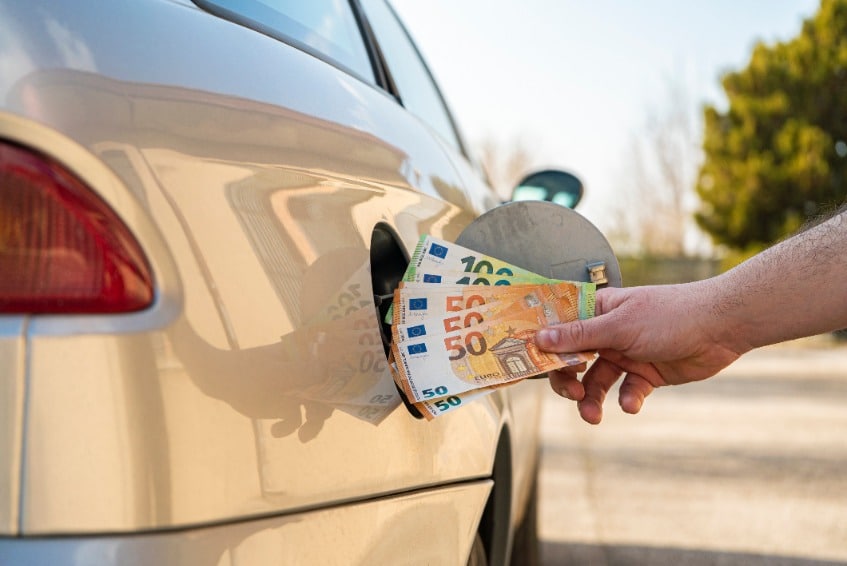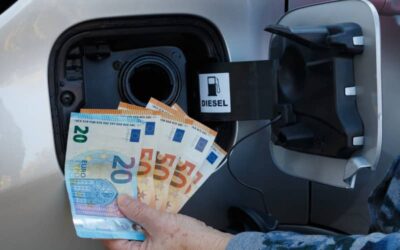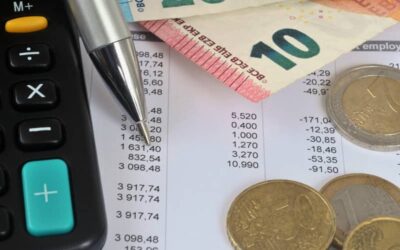Would you like to know how to save petrol in an easy way? In this article we are going to show you the best tips that will teach you how to save money every time you drive your car. Would you like to know them? We’ll show you them below.
Contenidos
1- Planning your trip
Good travel planning will always help you save petrol.
- As far as possible, you should always try to take the fastest routes.
- If you can choose between several routes, avoid the ones with the most gradients, so you will save more fuel.
- Also bear in mind that cruise control saves fuel, so this is also one of the tricks you can use if your car has this function.
2- Carry only what you need in the car
This is one of the best tips we can give you. The less stuff you carry in the car, the lower your fuel consumption will be.
- If you have a lot of stuff in the car, try to distribute it evenly.
- When you’re not using things, take them out of the boot. The weight will be less and you will save fuel and money.
3- Check your tyre pressure
One of the best tips for saving fuel on a daily basis is to check your tyres more or less often.
- Tyres with poor tyre pressure consume more fuel and wear out more quickly.
- A deviation of as little as 0.5 bar can increase fuel consumption by 2% in urban areas and 4% outside the city.
- If the bar deviation is higher than 0.5 bar, the tyres will wear out much faster and this will result in a loss of money saving.
4- Always try to travel at the same speed
According to the latest studies, drivers who always maintain the same speed on the road are the ones who save the most fuel.
- To maintain a constant speed on the road in order to reduce fuel consumption, it may be a good option to use cruise control.
- If you can see that you are approaching a bend, take your foot off the accelerator. Avoid using the tactic of continuing to accelerate and then having to brake. It is unnecessary fuel consumption.
- If you are driving in town at less than 20 km/h, always have a gear engaged. When you don’t press the accelerator, consumption will be almost zero. To give you an idea, the car at idle speed consumes about 0.5 litres per hour.

5- Starting and running
When starting the car, avoid having to press the accelerator.
- If you have a petrol car, you can start the car as soon as you start.
- Try to use first gear only at the start and shift quickly into second.
- Avoid sudden acceleration at the start.
6- Avoid idling the engine
If you are aware that you are going to make long stops, the best thing to do is to switch off the engine. Avoid having the engine running when you know that it will take more than one or two minutes to get the car moving again.
There are many people who, by saving petrol, avoid having to take out personal loans to finance refuelling. Always drive calmly and turn off the engine when you are not using it.
7- Cool the vehicle according to the speed you are going at.
When the weather is hot, there is always the question of whether to open the windows or put the air conditioning on to save as much fuel as possible.
- If you are travelling at a low speed, it is usually best to roll down the windows so that fuel consumption is not too high.
- If you are travelling at speeds above 60 km/h, then it is best to travel with the air conditioning on. Not only does it save money, but it is also much less dangerous.
- Don’t go at high speeds with the windows down because it is really dangerous and fuel consumption goes up.
8- Try to use the engine brake
If you learn to use the engine brake correctly, you can save fuel and especially brake wear. You can save up to 2% on fuel if you use the engine brake efficiently.
9- Drive in high gears
Learning to use the gears correctly is always synonymous with savings and professionalism in driving.
- As far as possible you should try to travel in high gears and low revs.
- Whenever possible you should be in 4th gear or higher to drive in low revs. Always respect speed limits.
- Experts always recommend changing gear at 2000 rpm in petrol cars. In diesel cars they recommend shifting at 1500 rpm. Understanding the car we are driving always helps us to save money.
10- Take advantage of downhill inertia
If you drive well you will quickly realise that you can save fuel when you are going downhill.
- The inertia will help you shift up to a higher gear and thus reduce consumption.
- With efficient driving, you can enjoy a more comfortable ride. Avoiding acceleration and braking is very important for a comfortable ride.




